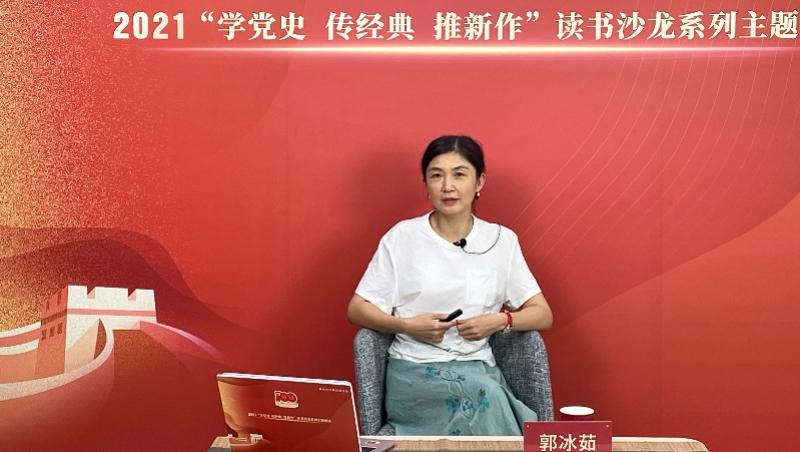A few days ago, Guo Bingru, professor and doctoral supervisor of Sun Yat-sen University, conducted online reading and sharing on the theme of "Analysis and Sharing of Classic Works of Red Literature: Revolution, War and Women in Modern Chinese Literature".
The event was hosted by the Guangzhou Municipal Federation of Literature and Literature, organized by the Guangzhou Greater Bay Area Cultural Exchange Promotion Center, and co-organized by the Guangzhou Literary and Art Critics Association, the Guangzhou Literary and Art Volunteer Association, and the Huangpu District Literary and Art Federation.

Guo Bingru believes that a group of female writers represented by Ding Ling have given new spiritual connotations to female images through revolution. These literary works can be divided into two categories by subject matter. One is to place the female image in the specific conflict between revolution and love, and explore the choice of subjects. In ding ling's "Wei Hu" and "Shanghai in the Spring of 1930" (one), as well as Shi Pingmei's "Horses And Horses" and other works, the heroine finally gave up love and family after struggling to find ideals and plunged into the revolutionary torrent.
Guo Bingru pointed out that the views in Xie Bingying's works can represent a certain consensus of the times: "They pin their future and happiness on the revolutionary cause." Who knows that the whole old society is not fundamentally overthrown, and women will never be liberated to be human one day! ”
At the same time, she said, the second type is to suspend gender differences in revolutionary narratives, and to treat women and men as equal revolutionary subjects. In "Song of Youth", Yang Mo borrows Lin Daojing's growth story to express the theme of the times that only by following the party can there be a new way out, and the female identity of the protagonist is constantly dissolved by his revolutionary image. Xie Bingying's "Diary of a Soldier" and "Autobiography of a Female Soldier" rarely mention gender issues in the war when recording specific revolutionary scenes such as marching, rescuing the wounded, and propaganda and mobilization, because the women who dedicated themselves to the revolution were already "on the same front as men."
These red classics faithfully document the great resilience and great power that women have shown in the revolution. Guo Bingru quoted Professor Li Xiaojiang of Dalian University as saying: "The awakening of Chinese intellectual women mostly began with national revolution, not women's liberation, and its national consciousness preceded and was far higher than women's consciousness and personal consciousness. This further clarifies the characteristics of women's liberation in China: not only is the 'class' deeply embedded in women's consciousness, but also closely entangled with the 'nation' and the 'state', and the imprint of war and revolution is written throughout the lives of women of several generations. ”
"The sons and daughters of China, Duo Qizhi, do not love red clothes and love arms." Guo Bingru believes that in both reality and literature, these women who have devoted themselves to revolution regard revolution as a road of self-realization, bravely seek, constantly obtain confirmation of their own subjectivity, and finally establish an isomorphic relationship between themselves and the revolution through the baptism of war.
Written by: Nandu reporter Xu Xiaolei